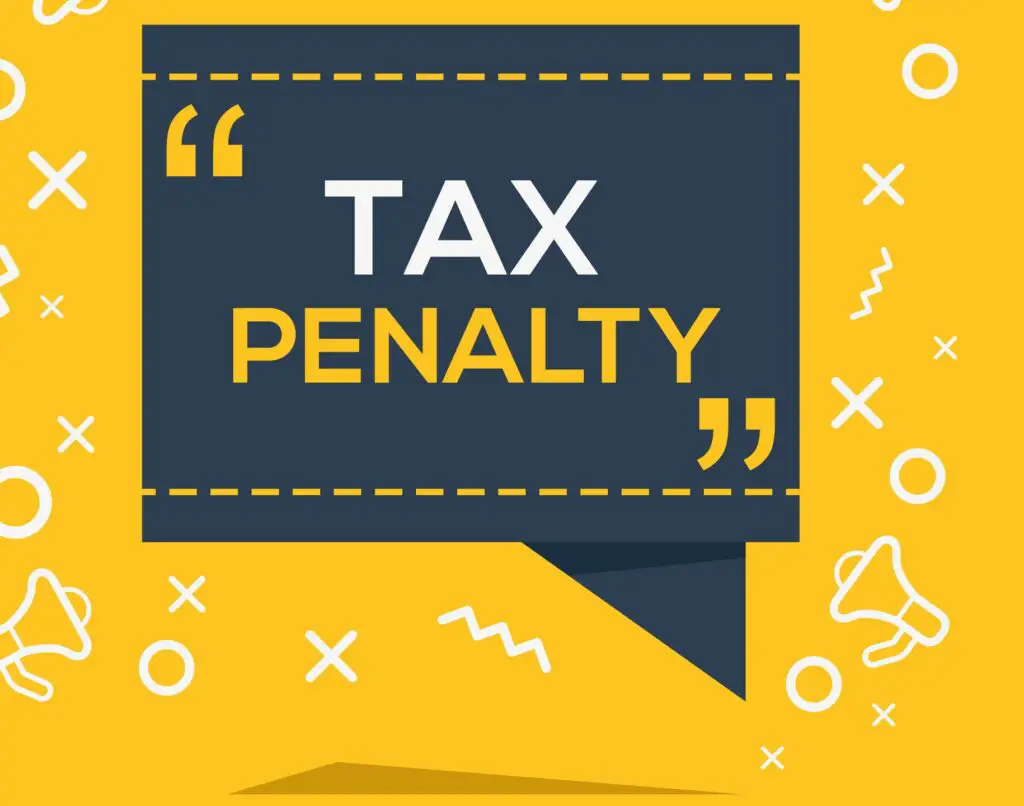 The IRS has a slew of penalties that may be imposed for doing something wrong, doing something late, or failing to do what you should have done: failure-to-file, failure-to pay, failure-to-deposit. Obviously, the best course of action is to avoid penalties by knowing the rules and acting correctly and on time. But this isn’t always possible. New laws, new regulations, or new circumstances can impede your ability to take actions that would avoid penalties. So, penalties occur. Now what? There are ways to minimize or avoid these tax penalties.
The IRS has a slew of penalties that may be imposed for doing something wrong, doing something late, or failing to do what you should have done: failure-to-file, failure-to pay, failure-to-deposit. Obviously, the best course of action is to avoid penalties by knowing the rules and acting correctly and on time. But this isn’t always possible. New laws, new regulations, or new circumstances can impede your ability to take actions that would avoid penalties. So, penalties occur. Now what? There are ways to minimize or avoid these tax penalties.
Ways to minimize or avoid these tax penalties:
Overview of penalty relief
Generally, penalty relief falls into 4 categories: reasonable cause, penalty exceptions created in the Tax Code, administrative waivers from the IRS, and correction of IRS errors. Usually, obtaining relief requires you to request it. Sometimes, relief is automatic.
Reasonable Cause
Reasonable cause is based on the facts and circumstances in each situation and allows the IRS to provide relief from a penalty that would otherwise be assessed. Reasonable cause relief is generally granted if you exercised ordinary business care and prudence in determining your tax obligations but nevertheless failed to comply with those obligations. Ordinary business care and prudence requires you to make reasonable effort to determine your tax obligations.
In assessing whether you exercised reasonable care, the IRS looks at the reason given, your past compliance history, the time between the event that triggered the noncompliance and subsequent compliance, and whether there were circumstances beyond your control (e.g., serious illness, fire, or storm). Ignorance of the law is no excuse.
For small partnerships and S corporations (those with 10 or fewer owners), reasonable cause is met automatically if all owners are natural persons (and not nonresident aliens), all owners receive equal allocations of each entity item, and all owners have reported these items on their personal returns.
Whether your reliance on erroneous advice from a CPA or other tax professional constitutes reasonable cause depends on the penalty.
Waivers in the Tax Code
The law may provide you with an out. Examples:
- Using postponements of deadlines by reason of a federally declared disaster or for other reasons.
- Relying on the written advice of the IRS, which turns out to be incorrect.
- Using specific penalty relief for employment taxes when workers you’ve been treating as independent contractors are reclassified as employees. Section 530 of the Revenue Act of 1978 created this relief.
Administrative Waivers
The IRS has a number of programs that taxpayers can use to avoid penalties.
Examples are:
- Employee Plans Compliance Resolution Program (EPCRS) can be utilized to self-correct errors in qualified retirement plans. Some actions avoid penalties; others permit reduced penalties.
- The penalty relief program for Form 5500-EZ can be used to obtain penalty relief for an overdue return.
- Underpayments of employment taxes can be self-corrected without interest (although penalties may apply). The amount of the underpayment must be paid by the time an adjusted return (e.g., Form 941-X, Adjusted Employer’s QUARTERLY Federal Tax Return or Claim for Return) is filed.
- Undue hardship relief for failing to pay taxes on time can be granted by filing Form 1127, Application of Extension of Time for Payment of Tax Due to Undue Hardship.
- Voluntary Classification Settlement Program (VCSP) may be used for reclassifying independent contractors as employees.
First-Time Abatement Program
You may be able to escape a penalty under the IRS’s first-time abatement (FTA) penalty waiver program. To qualify, you must have done things right in the past 3 years and be otherwise in compliance with all filings and payment requirements. You must request this relief; the IRS doesn’t do it on its own.
The National Taxpayer Advocate, in her mid-year report released on June 26, 2024, advocated for the IRS to “implement systematic first time abatement but allow substitution of reasonable cause.” In other words, the IRS should automatically apply this penalty relief if a taxpayer qualifies for it.
The report said that in tax year 2021, the IRS granted the FTA to approximately 200,000 taxpayers with respect to the failure-to-file, failure-to-pay, and failure-to-deposit penalties. In comparison, TAS analysis shows that a systemic (i.e., automatic) FTA would have waived penalties for approximately 4.5 million taxpayers.” In other words, the automatic relief would help small business owners facing penalties because they wouldn’t not have to engage (pay) a tax professional to request relief.
Another wrinkle she wants ironed out is the fact that FTA relief is considered before reasonable cause. If granted it means a taxpayer could not use FTA again for 3 years. She suggests that taxpayers have the option to use the reasonable cause basis for relief even if FTA could also apply. Let’s see if the IRS follows through on these suggestions.
Final thought
With the ever-growing complexity of tax rules for small business owners, incurring a penalty, at least once, is almost inevitable. I quoted famous football player and coach Paul Bear Bryant before, but it bears another mention: “When you make a mistake, there are only three things you should ever do about it: admit it, learn from it, and don’t repeat it.” There’s more about federal tax penalties, how to avoid them, and how to obtain relief from them, in my book J.K. Lasser’s Small Business Taxes. The 2025 edition will be released in December 2024.
To read more blogs about tax rules, check here.


